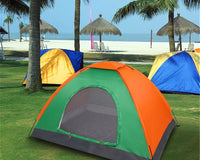A good sleep is a foundation for a healthy life. People spend one quarter to one third of their life sleeping! Sleep is an important, maybe even critical part of our healthy lives. What influences our good sleep? What can we do to improve quality of our sleep? We listed 5 things to do to improve your sleep…

What is sleep?
Sleep is defined in many different, and yet similar ways. Let’s see some of the most common definitions…
The Sleep Foundation gives us a short, one sentence definition that might just be the simple and clear enough explanation: Sleep is an essential function that allows your body and mind to recharge, leaving you refreshed and alert when you wake up. On the other hand, the definition from Wikipedia gives a wider, more detailed explanation: Sleep is a naturally recurring state of mind and body, characterized by altered consciousness, relatively inhibited sensory activity, reduced muscle activity, and inhibition of nearly all voluntary muscles during rapid eye movement (REM) sleep, and reduced interactions with surroundings. It is distinguished from wakefulness by a decreased ability to react to stimuli, but more reactive than a coma or disorders of consciousness, with sleep displaying different, active brain patterns. In general, we can say that there is no one and only definition of sleep, but all more-less explain the process similarly as the process of inhibited sensor activity and lower consciousness level, which helps the body regenerate and rest.
Define it one way or another, every definition or explanation agrees that sleeping is essential activity of humans or every living being. Its purpose is to help our body take a rest from daily activity and “reset” for the following day.

How to improve your sleep?
The Johns Hopkins University sleep expert and neurologist Mark Wu, M.D., Ph.D. definition of sleep and importance of it, gives us direct explanation of why it is important to have a good quality sleep every night: Sleep is a period during which the brain is engaged in a number of activities necessary to life — which are closely linked to quality of life.
Many things influence the quality of sleep…some are complex, but some are fairly simple and quite easy to resolve. Let’s see 5 things you can do to improve your quality of sleep:
- Use quality bed, mattress, and pillow, that suites your body. Start from the basics…you sleep in your bed every night, you spend 6-8 hours in it, so it should definitely be comfortable, supportive, the best you can arrange for yourself. Pillow should be the one that fits you most and it should be the first thing you want to change (if needed). It’s relatively cheap investment and there is a huge variety of pillows that you can choose from. 100% natural, memory foam, medical, combined, wedge, anatomical, contour…there is a pillow for everyone. So, take your time when searching for a pillow, test for a couple of nights (some pillows need some time to adjust to it, and most sellers give trial period), and select the perfect pillow for yourself. Same goes when buying a new mattress…take your time until you find the one that fits perfectly (and make sure to change your mattress as suggested by the manufacturer). For beds, it’s a little bit different…not so many variations in comfortability. It is important that you find a bed that fits your size and sleeping activity, and that is quality and sturdy construction and design. Recently, metal construction beds are becoming very popular due to their acceptable price and good quality and endurance, while having very modern designed.
- Create your pre-sleep routine. Humans like routines. It is something that keeps our mind relaxed, lowers stress hormones, and in general keeps our body relaxed as well. Try to create a pre-sleep routine that will be relaxing, “slow”, calming…basically, it is like you are slowly getting yourself into sleep by slowing down with activities, doing something that relaxes your mind and body. Do some simple things like, try to go to bed at the same time every night, maybe listen calming music, read some book, take a hot bath, meditate, do deep breathing exercises, visualization…relax and clear your mind.

- Avoid bad daily and pre-sleep activities. Many things you do during the day or in the evening will affect your sleep. Let’s just mention several that you should avoid: alcohol before sleep, eating late before sleep, irregular or long daytime naps, watching your phone/laptop or anything else that emits the “blue light” before sleep (this one is extremely present nowadays, many people check their phone before sleep…and besides the “blue light”, checking on activities in social media will more likely increase your stress hormones than decrease them), consuming caffeine late in the day (it stays in your system for 6-8 hours, and it is known that caffeine increases blood pressure, stimulates nervous system, does everything opposite from relaxing)…
- Include physical activity in your daily routine. Regular physical activity increases “happy” hormones and relaxes the body. Further, it gives you the needed activity so that your body will have a need for sleep and “regeneration”. Ideally, you should have physical activity outside; especially since bright natural day light will keep your body clock on a healthy sleep-wake cycle. Physical activity can promote better sleep, but make sure not to do it just before bedtime, make sure to give your body at least an hour or two to relax.

- Consider using sleep inducing supplements. Most sleep issues are easily resolve with over-the-counter pharmacy supplements that will help you relax and sleep better. Melatonin supplements are an extremely popular sleep aid. Melatonin is a key sleep hormone that tells your brain when it’s time to relax and head to bed. You can also see some of the herbal based supplements, such as Ginkgo biloba, Lavender, Valerian root... Make sure to only try these supplements one at a time and according to medical specialist recommendation i.e. as suggested on the package!
If your sleeping quality doesn’t get better, make sure to rule out a sleep disorder. Most common sleep disorders are insomnia, sleep apnea, and restless leg syndrome. You can recognize them yourself, but to make sure you are doing it right (and to get professional advice) it is best to visit a sleep expert.
Don’t forget, you can enjoy being awake only if you previously enjoyed sleeping well!












